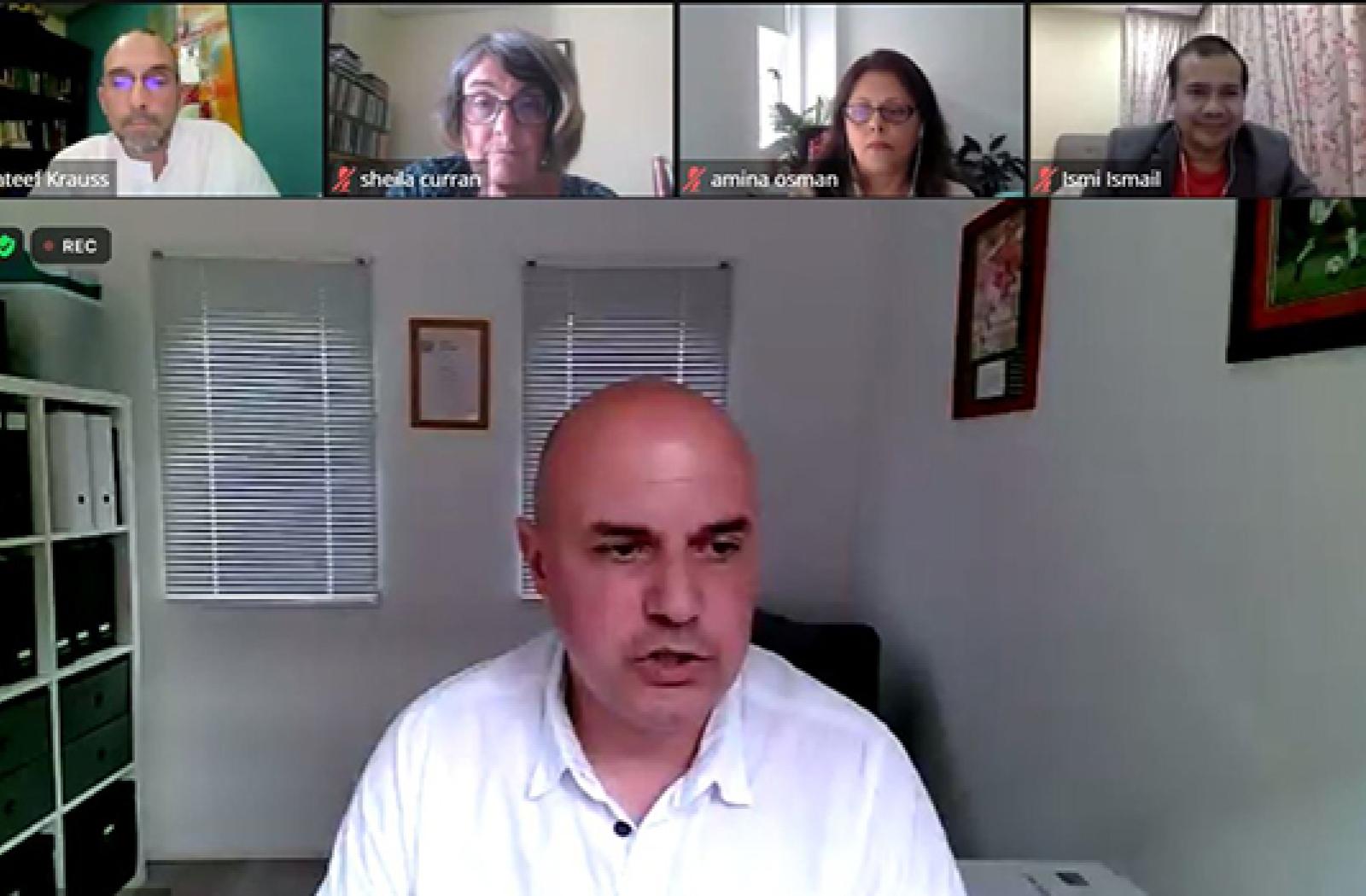Youth workers used the words “challenging”, “resilient” and “hopeful” to describe the future of their work after COVID-19 at a Virtual Commonwealth Café.

Youth workers used the words “challenging”, “resilient” and “hopeful” to describe the future of their work after COVID-19 at a Virtual Commonwealth Café.
The café meeting, hosted by the Commonwealth Secretariat, the Universiti of Putra Malaysia and the Professional Association of Lecturers in Youth and Community Work (PALYCW), gave practitioners, experts and youth a space to voice the challenges caused by the COVID-19 pandemic and network with their peers from across the Commonwealth.
Tackling youth work challenges
Key topics included the need for more mental health support and innovative teaching methods that have been adopted around the world amid the pandemic-induced limitations on face-to-face contact.
Speaking about the meeting, Dr Amina Osman, an Education Adviser at the Commonwealth Secretariat, said: “This Café sprung from an idea of the Commonwealth Higher Education Consortium for Youth Work, which seeks to promote youth work as a valued profession that is crucial to youth engagement and requires robust education and training mechanisms.
“Together with our partners, we want to open spaces and hold collaborative conversations. This will help us to co-create, explore and link notions as we share knowledge based on real-life experiences and contemplate new ideas to solve problems together.”
Focusing on disruptions caused by COVID-19, Lateef Krauss, an Associate Professor at the Universiti Putra Malaysia, presented a study which examined how young people accessed support during the pandemic and described inadequate funds, technological constraints and demoralisation as the main challenges facing youth workers.
Reimagining the future
Participants further tackled the task of imagining what the future could look like for youth workers. They reviewed research conducted by PALYCW members, including academics from three UK universities: Sheila Curran (Open University), Dr Sinead Gormally (Glasgow University) and Christine Smith (University of Hull).
Their studies highlighted the impact of COVID-19 on teaching practices and aimed to address the evolving nature of youth and community work practices for young people.
Meeting participants mulled over research results, which predicted disruptions in youth programmes at British universities and anticipated longer-term changes in learning and teaching techniques as well as the role of technology in education.
Finding the positives
Towards addressing the challenges posed by the pandemic, participants looked at how the crisis shone a light on youth workers, finally giving them “due recognition”.
Stressing this point, Dr Gormally said: “COVID-19 has been hard for many people but one of the things we did find within our higher education institutions is that people, who ordinarily ignored our work, suddenly became interested in it. COVID-19 made some people actually start listening.”
Dr Osman said the meeting highlighted the need for urgent support to the youth work sector. She continued: “In the society that emerges after COVID-19, youth workers require more support than ever to ensure they have the best possible outreach and learning strategies.
“The resources and meaningful discussions that were shared at the Café provided youth workers with a platform to share their concerns and most importantly, gave them hope for the future during this uncertain time.”
The Commonwealth Secretariat, in collaboration with its partners, will host more virtual café meetings in the future.
Charlotte Barcham, a social media and web intern at the Commonwealth Secretariat, contributed to this story.



